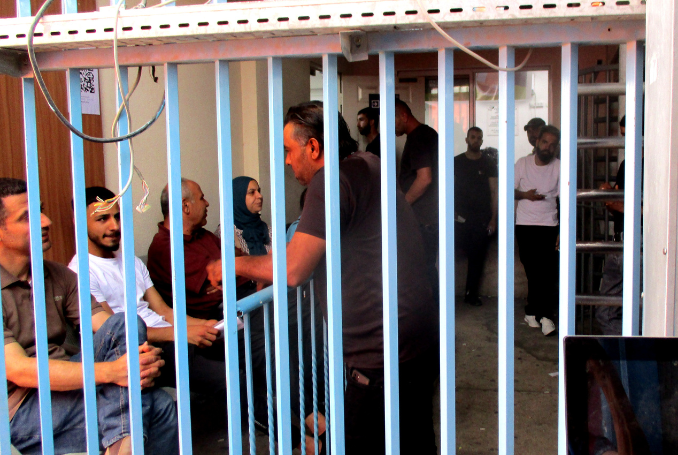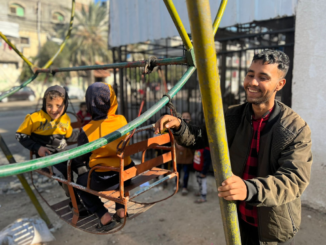
New Israeli guidelines on access to the Occupied West Bank for foreigners threaten to further isolate Palestinians, Human Rights Watch (HRW) said today.
The guidelines came into force in October 2022 and were amended in December 2022, setting out detailed procedures for West Bank entry and residency for foreigners, a process distinct from the procedure for entry to Israel.
The new guidelines codify and tighten long-standing restrictions. According to HRW, the guidelines threaten to make it even harder for Palestinians in the West Bank, who already face severe Israeli-imposed movement restrictions, to be with family members who lack a West Bank ID and to engage with foreign students, academics, experts and others.
“By making it harder for people to spend time in the West Bank, Israel is taking yet another step towards turning the West Bank into another Gaza, where two million Palestinians have lived virtually sealed off from the outside world for over 15 years,” said Eric Goldstein, deputy Middle East Director at Human Rights Watch.
“This policy is designed to weaken the social, cultural, and intellectual ties that Palestinians have tried to maintain with the outside world.”
HRW interviewed 13 people who detailed difficulties they have faced for years entering or remaining in the West Bank and their concerns about how the new guidelines will affect them.
The rights group also interviewed Israeli lawyers who have represented those challenging the restrictions. Those interviewed include an American psychologist teaching at a Palestinian university, a British mother of two trying to remain with her Palestinian husband and family and a Palestinian who has lived most of his life in the West Bank but does not have an ID.
The new restrictions were used to block Human Rights Watch’s Israel and Palestine director Omar Shakir from entering the West Bank. Shakir was denied a permit to enter the West Bank for one week to conduct research and advocacy.
Everyone Human Rights Watch interviewed described major bureaucratic obstacles to remain legally in the West Bank and the impact of the restrictions on their lives.
An American businesswoman married to a Palestinian, who has lived in the West Bank for over a decade and asked that her name be withheld for fear of retaliation, said she had to leave her young children behind and stay abroad for several weeks in 2019 after her visa was denied.
She said the stress and hardship led her to “break down in sobs in front of my son’s school as I dropped him off, not knowing whether I would see him again.” Her visa was reinstated only after diplomats intervened.
(MEMO, PC)








Your creditiliy would be higher ifyou also report on what ground the apartheid state says they treat people like that, housedemolition, passportsquestion oppression etc.
I mean, lots of people around the world suffers from dictatorships etc but hardly i the same SYSTEMATIC and racist way as Israel do